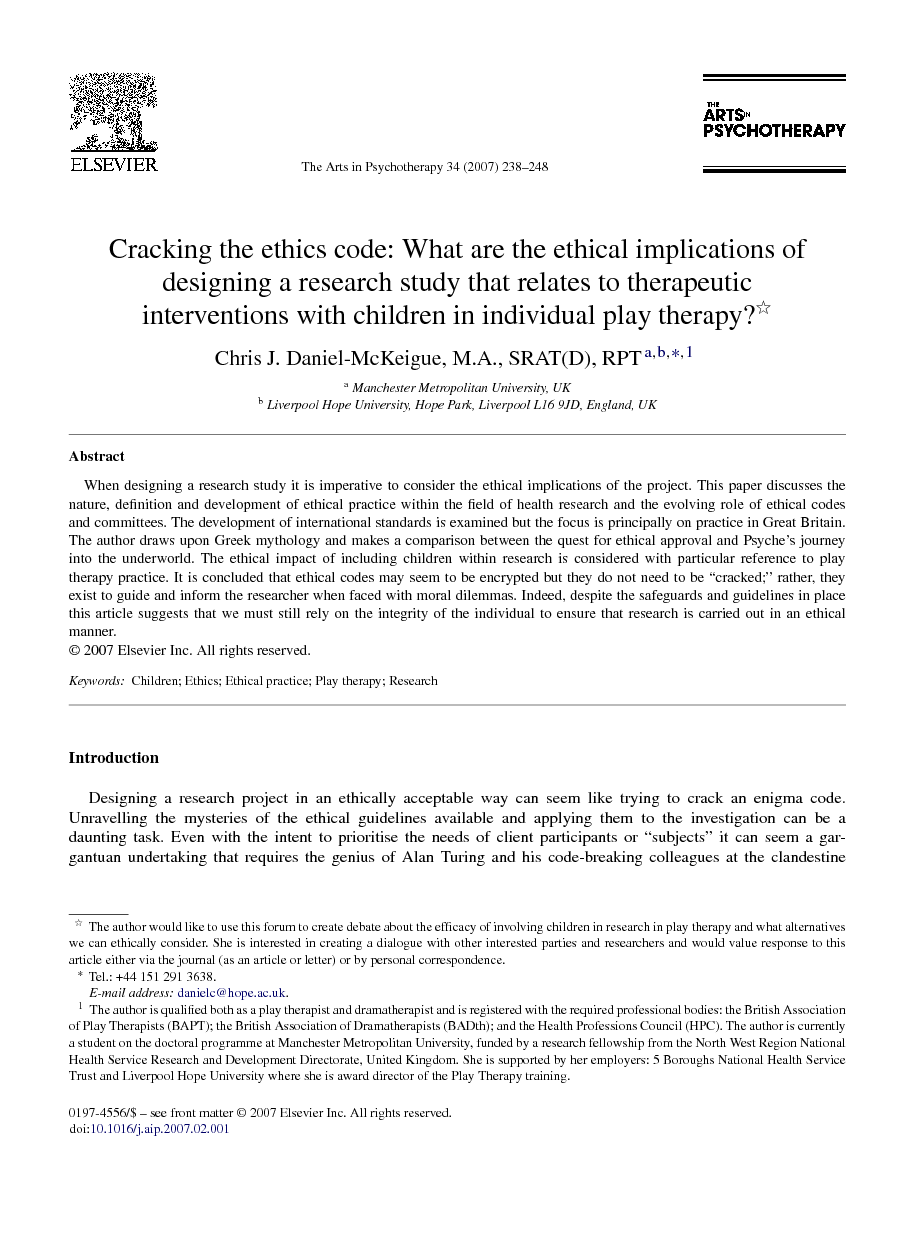ترجمه فارسی عنوان مقاله
کراکینگ کد اخلاق: مفاهیم اخلاقی طراحی یک مطالعه پژوهشی که مربوط به مداخلات درمانی با کودکان در بازی درمانی فردی هست، چیست؟
عنوان انگلیسی
Cracking the ethics code: What are the ethical implications of designing a research study that relates to therapeutic interventions with children in individual play therapy?
| کد مقاله | سال انتشار | تعداد صفحات مقاله انگلیسی |
|---|---|---|
| 31149 | 2007 | 11 صفحه PDF |
منبع

Publisher : Elsevier - Science Direct (الزویر - ساینس دایرکت)
Journal : The Arts in Psychotherapy, Volume 34, Issue 3, 2007, Pages 238–248
ترجمه کلمات کلیدی
کودکان -
اخلاق -
عمل اخلاقی -
بازی درمانی -
تحقیقات -
کلمات کلیدی انگلیسی
Children,
Ethics,
Ethical practice,
Play therapy,
Research,

